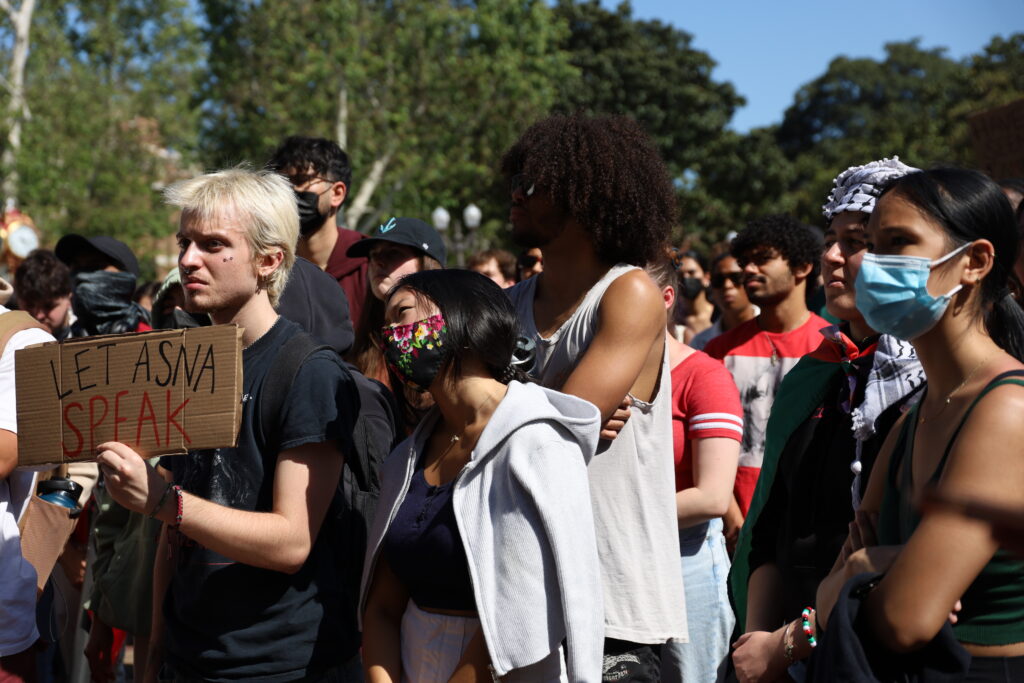Concerned about RFK Jr.’s assault on vaccines, I called my local CVS pharmacist a few days ago to schedule every vaccine for which I was eligible. I got the flu vaccine and the RSV vaccine.
I asked for the COVID-19 vaccine, but was told that the latest version would not be available until mid-October. I’m in the eligible group (over 65), but no vaccine yet. When I got home, I learned that the vaccine is not available in certain states, including New York. I worry that RFK Jr. may decide to cancel the vaccine altogether.
Wajahat Ali writes on his blog, The Left Hook, about RFK Jr.’s threat to public health:
In today’s Democracy-ish, Danielle and I spend the hour discussing the most dangerous horseman of Trump’s Apocalyptic cult: RFK Jr.
Oh, you know, the scion of the Kennedy empire who was a heroin addict, suffered from brain worms, ate exotic animals, and was described as a predator by his own cousin.
That RFK Jr., who promotes reckless and dangerous anti-vaxx conspiracies, eugenics, and has no medical background or training. That’s the wealthy, mediocre, white man that Trump has elevated as the director of America’s Health and Human Services.
I mean, what could go wrong?
Who needs vaccines during COVID or the rise of measles? Who needs Medicaid except 20% of Americans who depend on it for healthcare? Who needs the National Institute of Health or the CDC staffed by competent, qualified professionals who have spent their lives devoted to saving lives?
Not the United States, because we aren’t a bunch of woke, weak pansies who listen to so-called experts, damn it!
Welcome to Trump and MAGA’s pro-death march led, in part, by RFK Jr. and his broligarch friendswho are perfectly fine killing Americans to make a profit and advance their white supremacist agenda.
We bring all the receipts. It’s depressing, but it’s worth hearing to ensure you stay informed, safe, and protected.
Here’s Danielle’s write-up at DAM DIGEST:
In the United States, public health has long depended on institutions like the Centers for Disease Control and Prevention (CDC), the National Institutes of Health (NIH), and the Department of Health and Human Services (HHS). For decades—through Republican and Democratic administrations alike—these agencies functioned under a shared goal: protecting Americans’ health through science, research, and expertise.
But in recent years, that foundation has begun to crack. The appointment of Robert F. Kennedy Jr. (RFK Jr.), an outspoken anti-vaccine activist with no medical training, to lead HHS has brought that crisis into sharp focus. His presence in the nation’s top public health office signals a seismic shift—one where politics trumps science, conspiracy theories replace research, and ideology threatens lives.
The Erosion of Trust in Science
During the COVID-19 pandemic, more than one million Americans died, while public health officials faced harassment, death threats, and relentless political attacks. Former CDC Director Anthony Fauci, who spent his career working to save lives, became a target of right-wing media and extremist groups.
Instead of rallying around experts, leaders like Donald Trump and his allies downplayed the severity of the pandemic, promoted misinformation about masks and vaccines, and openly mocked scientists. This politicization of science directly fueled vaccine hesitancy, prolonging the crisis and causing unnecessary deaths.
Now, five years after the peak of the pandemic, the United States faces a resurgence of diseases once thought to be under control—measles, polio, and other preventable illnesses—precisely because vaccination rates have dropped.
RFK Jr.: Conspiracies Over Credentials
RFK Jr.’s position is especially alarming given his history of promoting anti-vaccine propagandaand debunked eugenics myths. He has falsely claimed that autism and other health conditions are caused by vaccines and even suggested that COVID-19 was “targeted to spare Jews and Black people”—a statement widely condemned as antisemitic and racist.
Despite his lack of medical training, Kennedy insists he can “diagnose” children by sight, attributing health challenges to supposed “mitochondrial issues visible in their faces.” Licensed physicians, including those trained at Harvard and Mayo Clinic, have dismissed such claims as pseudoscience.
Yet under the Trump administration, this man now wields control over Medicare, Medicaid, the CDC, NIH, and national vaccine policy—institutions responsible for the health of over 330 million Americans.
The Resignations and Walkouts
The consequences are already unfolding. After Kennedy moved to push out CDC Director Dr. Susan Monarez—a Trump appointee who nonetheless refused to abandon science—top scientists and health officials resigned in protest. Dr. Dimitri Daskalakis, a respected infectious disease expert, wrote in his resignation letter that serving under Kennedy was “untenable” because HHS leadership was no longer guided by science.
Soon after, CDC staff staged mass walkouts, warning the public that American lives are being endangered by unqualified leadership. These resignations leave critical gaps at the very moment the nation faces rising COVID variants, climate-driven disease risks, and growing vaccine hesitancy.
Cuts That Will Cost Lives
Beyond personnel, the Trump–Kennedy administration has overseen massive funding cuts:
- $500 million slashed from vaccine research
- $1 trillion cut to Medicaid, threatening to shutter rural hospitals and nursing homes
- Reductions in NIH research funding
- Cuts to foreign aid and peacekeeping operations, destabilizing global health security
These moves directly undermine America’s preparedness for the next pandemic. As climate change accelerates, experts warn that new infectious diseases are almost inevitable. Yet instead of strengthening systems, leaders are dismantling them.
The Bigger Picture: A Pro-Death Movement
This moment cannot be seen in isolation. It reflects a broader “pro-death” political movement that prizes ideology over evidence, power over public health, and partisan gain over human life. Whether it was Trump pushing “herd immunity” at the expense of vulnerable Americans, or Kennedy advancing conspiracy theories that endanger children, the pattern is clear: science is under attack.
The result? Americans are less safe, less protected, and less prepared for the crises ahead.
Why This Matters Now
The rise of unqualified, conspiracy-driven figures like RFK Jr. at the helm of America’s most critical health institutions is not just political theater—it is a direct threat to public safety. The decisions made today about vaccines, research funding, and disease response will determine whether millions live or die in the years ahead.
Public trust in science and medicine must be restored. That means demanding qualified leaders, protecting the integrity of institutions like the CDC and NIH, and pushing back against those who seek to weaponize public health for political gain.
Because as history has shown—from pandemics to polio eradication—science saves lives. Conspiracies cost them.







